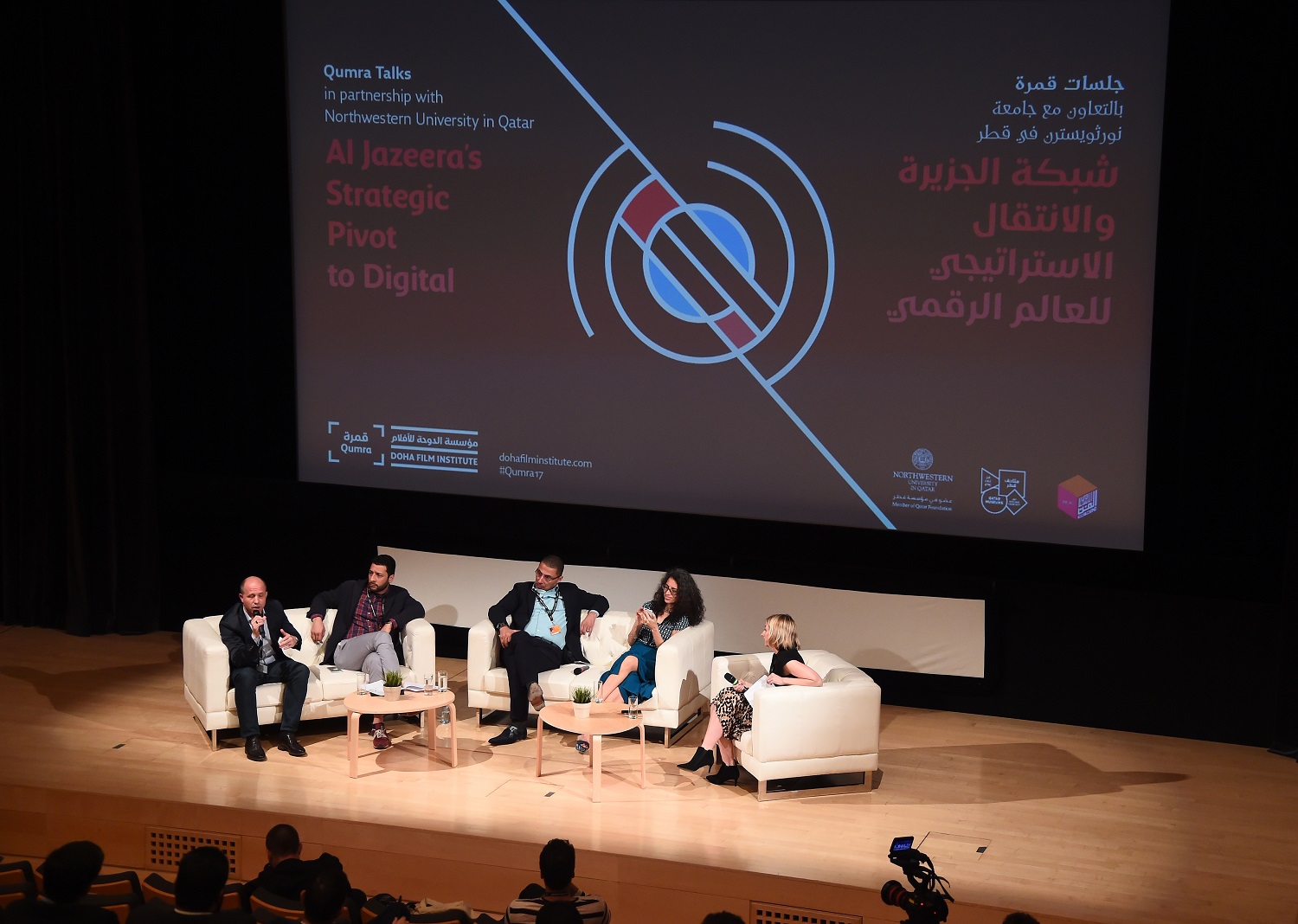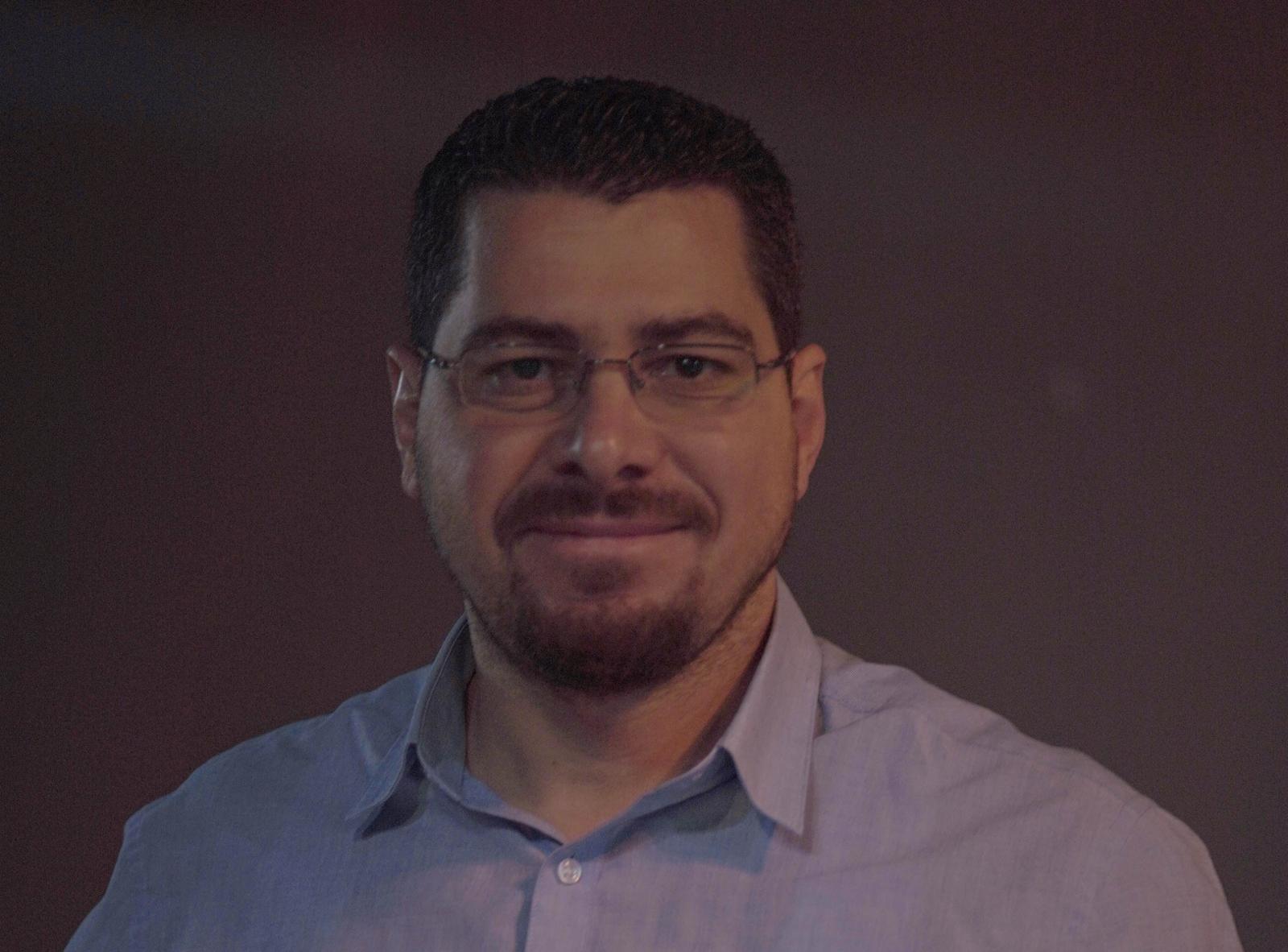قبل سنة كنت أعمل في مؤسسة تلفزيونية، وكان الاجتماع الشهري العام -لمديري أقسام التحرير والتواصل الاجتماعي والأخبار وغيرها- يتركز حول أرقام المشاهدات والتفاعلات على المنصات الرقمية، التي يرتبط بها "مقياس النجاح" والتفوق على المنافسين.
أذكر أن معظم القائمين على تلك المنصات كانوا من المختصين بمجال التسويق الإلكتروني (Digital Marketing)، وليسوا من الصحفيين. وعندما تسائلهم الإدارة عن ضعف التفاعل والمشاهدات على المنصات الرقمية؛ كانوا يرمون الكرة في وجه الصحفيين لأنهم لا ينتجون مواد تتناسب مع متطلبات وسائل التواصل الاجتماعي، و"معيارهم" لهذا التناسب هو عدد المشاهدات فقط!
تعيش معظم المؤسسات الإعلامية صراعا داخليا بين الصحفيين وناشري المحتوى والمسوقين الرقميين، ويخلف هذا الصراع سؤالا كبيرا حول من يتحكم بمن؟ التلفزيون، أم وسائل التواصل الاجتماعي؟ ولمن الكلمة الفصل حول طبيعة المواد المنشورة؟
النجاح على المنصات الرقمية
لو صادفت مادة منشورة على وسائل التواصل الاجتماعي، وحصلت على مليون مشاهدة، بينما لم تتجاوز أعداد المشاركات والتعليقات والإعجابات حاجز الألف، ماذا ستقول؟
بلمحة سريعة، لو أردنا تتبع أسس النجاح على المنصات الرقمية، فينبغي أن نعرف أن عدد المشاهدات (Views) المرتفع ليس العامل الوحيد وراء القول: إن هذه المنصة الرقمية "ناجحة". لكن الأساس هو التفاعل (Interaction) الذي يحسب عن طريق قياس متوسط عدد التعليقات والإعجاب والمشاركة والمشاهدات مقارنة بعدد المتابعين (1) وهو ما يعرف بالـ "Engagement". ويمكن تلخيص أهم معايير الوصول إلى تفاعل قوي على المنصات الرقمية، بـسرعة النشر، وتجنب المبالغة عند نقل الأخبار، والابتعاد عن الأشكال النمطية في تقديم المعلومة، واختيار عناوين تشجع على التفاعل، واختيار المحتوى المناسب لكل منصة، ومعرفة الوسوم المتداولة، وأفضل أوقات النشر (2)، وطرح المواد التفاعلية التي تهم الجمهور المستهدف من حيث طرح قضايا سياسية واجتماعية واقتصادية، ومعرفة خصائص المتابعين الديموغرافية (3).
لكن السعي نحو زيادة المشاهدات والإعجابات، يدفع الكثير من التلفزيونات لشراء مشاهدات وإعجابات وهمية، الأمر الذي بدأت المنصات الرقمية بمحاربته (4). كما تلجأ كثير من التلفزيونات إلى دفع مبالغ مالية لـ "فيسبوك" و"إنستغرام" وغيرها عن طريق تمويل منشوراتها (Sponsored)؛ لزيادة التفاعل، خاصة بعد اعتماد فيسبوك معايير تقلل من وصول المحتوى للجمهور. فمنذ نهاية 2020، انخفض متوسط الوصول المنشورات إلى 5.2٪ مقارنة بـ 5.5٪عام 2019 و7.7٪ عام 2018 (5).
ولا تنحصر المنافسة بين التلفزيونات فقط، بل مع منصات رقمية ظهرت مع نشوء وسائل التواصل الاجتماعي، وباتت تهدد تلفزيونات كبرى بارتفاع حجم التفاعل لديها؛ كونها لا تتقيد بأي معايير صحفية. وهنا تعمد بعض التلفزيونات للتضحية ببعض معاييرها الصحفية للمنافسة على المشاهدات.
ويمكن أن نلحظ ذلك عن طريق الكثير من الحسابات الفردية التي كانت تحصل على أرقام تفاعلية عالية، وعند تبني أي مؤسسة لصاحب ذلك الحساب ينخفض تلقائيا التفاعل؛ نتيجة قيود السياسة التحريرية أولا، ومعايير الصحافة ثانيا (6).
المنصات الرقمية وسمعة التلفزيون
يرى غالبية القائمين على المنصات الرقمية التابعة للقنوات الناطقة بالعربية، أن قوة المنصات الرقمية لوسائل الإعلام هي مصدر النجاح؛ لأن ذلك دليل قدرتها على جذب أكبر عدد ممكن من المتابعين الذين يتفاعلون مع المواد؛ ما يؤدي إلى ارتفاع أرقام المشاهدات والوصول إلى شريحة أكبر من المتابعين (7). فالأرقام الحقيقية تعني نجاح الوصول للجمهور، خاصة مع امتلاكه لخبرة كبيرة مع وسائل التواصل واختيار الصفحات المميزة التي تعبر عنه. فمثلا متابعة الجمهور وتفاعله مع المنصات الرقمية للوسيلة الإعلامية يعني اعتمادهم على هذه الوسيلة كمصدر للخبر إضافة إلى ولائهم للوسيلة (8). ولكن ينبغي الانتباه -دائما- إلى أن هذا النجاح مرتبط بأن الأرقام حقيقية وليست وهمية، وبالتالي يمكن قياس قدرة الوسيلة على مخاطبة الجمهور (9).
هذا السعي للوصول إلى أرقام عالية دفع كثيرا من التلفزيونات إلى نشر مواد تثير جدلا حول قيمتها الصحفية، لكنها تجذب ملايين المشاهدات، وتكون إما للتسلية والترفيه أو أنها تشكل "ترند" على وسائل التواصل الاجتماعي.
وكذلك يعمل مديرو الكثير من الصفحات الرقمية على رفع نسبة الفيديوهات المباشرة (Live) التي تأتي من التلفزيون مباشرة؛ لتعويض أي تقصير في المحتويات الخاصة بوسائل التواصل الاجتماعي؛ بحيث يصبح دور المنصة الرقمية أشبه ببث القمر الصناعي.
واللجوء إلى البث المباشر ليس فقط لمزامنة البث الفضائي، بل لأن الفيديو المباشر يجذب تفاعلًا أعلى بـ 6 مرات من الفيديو العادي، وكذلك، فإن هذا البث يبقى إلى أجل غير مسمى، ولا يختفي في وقت قريب أو معلوم، وهنا تصطاد الوسائل الإعلامية عصفورين بحجر واحد (10).
لمن الكلمة الفصل في النشر؟
تخضع المواد المنشورة -بشكل أساسي- لمعايير صحفية مرتبطة بالسياسة التحريرية، مع مراعاة معايير وسائل التواصل الاجتماعي لتحقيق الوصول والتفاعل. وتحدد طبيعة المواد المنشورة وفق آلية متفق عليها بين الصحفيين الذين يمارسون دور الناشرين أيضا، ومسؤولي التسويق الرقمي الذين يساعدون على تحسين المحتوى والشكل؛ لتحقيق المزيد من التفاعل (11).
إلى جانب ذلك، فإن التسويق يخضع لعمل جماعي، كأن يرسل المسؤول الرقمي توصياته والمحاذير والتنبيهات التي تتجدد بشكل يومي من قبل المنصات. أما الصحفي فيقوم بإرسال مواده طبقا لهذه المعايير، مع الأخذ بعين الاعتبار دائما أنك على منصة لا تملكها، وبالتالي فأنت تخضع لقوانينها، وهذا لا يعني أن محتوى التلفزيون الذي يتم نشره غير خاضع لمعايير صحفية، فالوصول إلى الموازنة بين قوانين هذه المنصات ومعايير الصحافة هو هدف دائم (12).
لكن زيادة التفاعل تدعو إلى طرح محتوى مثير وغير خبري؛ بحيث يخلق تفاعلا ونقاشا وتحفيزا للجمهور الذي يطرح رأيه وأسئلته من خلال تلك المنصات. فوسائل التواصل الاجتماعي تتحكم بمنشورات التلفزيون، بعدما أصبح متأخرا عن طرح القضايا وإثارة الجدل؛ بدليل أننا لا نكاد نسمع أي قضية طرحها تلفزيون أصبحت محط نقاش على وسائل التواصل الاجتماعي، بل إن القضايا الجدلية تبدأ وتشتعل على وسائل التواصل ثم تنتقل إلى الإعلام التقليدي (13).
ويبدو أن الصراع بين الصحافة والتسويق الرقمي لن ينتهي قريبا؛ ما دامت محددات النجاح تخضع بشكل أساسي لأرقام التفاعلات والمشاهدات. وباستثناء يوتيوب الذي يعتبر أرشيفا إلكترونيا للوسيلة، بحيث يكون المحتوى الصحفي الرصين كبيرا جدا؛ فالتفاعل فيه ليس العنصر الأساسي الوحيد.
جودة المواد الصحفية
إن السعي وراء أرقام المشاهدات الكبيرة على صفحات التواصل الاجتماعي يكاد يلغي جودة المواد الصحفية المنشورة على تلك المنصات؛ لأن طبيعة الجمهور تلعب دورا كبيرا في تحديد المحتوى الذي تقدمه التلفزيونات على منصاتها. فأغلبها تتجه نحو إرضاء الجمهور؛ لزيادة وجودها الرقمي والتفاعل مع منشوراتها، ولكنها تحاول أيضا الحفاظ على معايير صحفية لإرضاء شرائح أخرى من الجمهور الذي ينظر إليها كمصدر للأخبار الصحيحة (14). وفي ظل هذا الواقع تسعى بعض التلفزيونات للموازنة بين حاجة الجمهور والصحافة، بحيث تحذف منشورات عليها ملايين من المشاهدات والزيارات والتفاعلات إذا كانت لا تتوافق مع معايير الصحافة أو السياسية التحريرية للتلفزيون (15).
حلول رقمية
طبيعة المنصات الرقمية ومعاييرها لا تقبل نشر كل ما ينتجه التلفزيون، وكذلك التلفزيون لا يمكنه التأقلم مع المحتويات المعدة للنشر على وسائل التواصل الاجتماعي، مع وجود استثناءات لبعض القنوات.
وللحد من حالة الاستقطاب بين وسائل التواصل الاجتماعي والتلفزيون تشترط بعض القنوات أن يكون منتجو المحتوى للمنصات الرقمية من الصحفيين المتمرسين في إعداد محتوى رقمي مميز، بناء على معرفته بالأحداث الراهنة وأهميتها، إضافة للقدرة على اختيار قوالب مناسبة لإيصال المعلومات عبرها (16).
وبالإضافة إلى ذلك، يجب تقديم مواد سريعة وخفيفة، مع مراعاة رصانة المحتوى الصحفي؛ كيلا تصبح منصات التلفزيونات في منافسة مع منصات التواصل الاجتماعي الناشئة حديثا، والتي لا تتقيد بمعايير الصحافة (17).
لذا؛ فإن تطوير محتوى خبري خاص بالمنصات الرقمية يعد من الحلول المتوازنة للحد من سيطرة الرقمنة ومعايير الصحافة الصارمة كتجربة الجزيرة على منصاتها الرقمية المسماة "إيجاز".
وتعمل الكثير من التلفزيونات على إنشاء منصات بديلة لما يمكن أن نسميه الإعلام الجديد أو إعلام مواقع التواصل. لكن معظمها خاضع بشكل كلي لمعايير التواصل الاجتماعي، ومن هذه المنصات على سبيل المثال: إي جي بلس التابعة للجزيرة وأنا العربي التابعة للتلفزيون العربي وسوريا ستريم التابعة لتلفزيون سوريا. لكنها تلجأ إلى المواد الساخرة وتقارير الإنفوغراف في غالب المحتوى، متناسية الجانب الخبري المبني على رصانة التلفزيون.
ختاما، يمكن القول بأن من يعمل على تأسيس منصات إخبارية على وسائل التواصل الاجتماعي، يكون طابعها ليس ساخرا، وليس ناقلا لمواد التلفزيون الجامدة، بل قالبا جديدا يساهم في تعزيز صورة التلفزيون ورصانة معايير الصحافة ويواكب سرعة وخفة مواد عصر الرقمنة، سيكون صاحب السبق الرقمي الصحفي المرئي.
المراجع:
1-4-6-9- 13-17) مقابلة عبر الإنترنت مع بسام شحادات، خبير واستشاري في الإعلام الرقمي.
2-7-11-14-16) مقابلة عبر الإنترنت مع معتز عنتابي، صحفي متخصص بوسائل التواصل الاجتماعي، ومشرف رقمي على منصات تلفزيون تي ري تي العربية.
3-8- 12-15) مقابلة عبر الإنترنت مع بيان الخانجي، مسؤولة مواقع التواصل الاجتماعي في تلفزيون سوريا.
5-10) https://blog-hootsuite-com.cdn.ampproject.org/c/s/blog.hootsuite.com/facebook-algorithm/amp/














![Palestinian journalists attempt to connect to the internet using their phones in Rafah on the southern Gaza Strip. [Said Khatib/AFP]](/sites/default/files/ajr/2025/34962UB-highres-1705225575%20Large.jpeg)


























